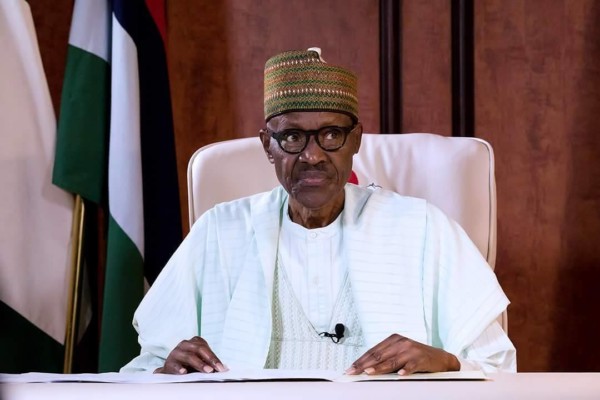The Federal Government of Nigeria (FGN) reported a record-breaking fiscal deficit of N7.3 trillion in 2021.
Specifically, according to data from the Central Bank of Nigeria which was analysed by Nairalytics (Nairametrics’ research arm), the Federal government’s actual expenditure of N11.69 trillion vastly exceeded its 2021 generated revenues of N4.39 trillion.
In other words, for every N4 earned by the Federal government, it spent over N11. The fiscal imbalance in 2021 is the largest on record since 2012 to date.
Recall that the Nigerian government has been running a fiscal deficit for at least ten years (from 2012 to 2021), however, the latest 2021 deficit is simply remarkable and is 22% higher than the N5.98 trillion deficit recorded in 2020.
- Most economists will argue that governments occasionally need to run budget deficits to support expansionary policies. Albeit with a caveat that budget deficits should be targeted for productivity growth AND preferably be time-bound.
- In other words, governments should NOT aim to run perpetual fiscal deficits to avoid the negative economic effects of crowding out. You can read more about crowding out here.
Specific to the Nigerian Federal Government, its budget deficits are largely funded by a mix of domestic and external debt, thus higher budget deficits simply mean more government borrowing.
- This pattern of continually running deficits and increasing borrowing is not sustainable especially as the dual headwinds of anemic economic GDP growth and weak tax receipts coupled with higher borrowing will result in an increasing debt service bill in proportion to revenues.
- For context of FG’s stagnating revenue, note that the N4.39 trillion generated in 2021 is actually 6% lower than the N4.69 trillion generated in 2019.
Breakdown of FGN expenses
A quick breakdown of the N11.69 trillion for 2021 shows
- 52 trillion was spent on capital expenditure in 2021, representing 21.3% of the total expenditure.
- 22 trillion was spent on Debt servicing comprising 36.1% of total expenditure.
- 4 trillion was spent on Personnel cost (including Pensions and Gratuities)
- 34 trillion was spent on various items such as Transfers (N496.52 billion), Presidency Amnesty Programme (N59.59 billion), while overhead cost, MYTO, and Service Wide Vote cost stood at N779.18 billion.
Debt Servicing pressures persist
The above breakdown of Nigeria’s expenditure shows debt service expense is a large component of FG expenditure.
- Even more remarkable is that the N4.22 trillion spent on paying the debt in 2021 is 29% higher compared to N3.27 trillion recorded in 2020.
- These increases can be attributed to a higher debt profile which now stands at $95.87 billion (2021) or 11% higher than the $86.39 billion as at 2020 according to data from the Debt Management Office (DMO).
- In a global environment of rising interest rates, the cost of paying off this large and growing debt pile will continue to exert a heavy burden on the country’s finances.
2022 could be worse
From a 2022 perspective, a number of factors suggest the FG’s expenditure is likely to outpace its revenue at a record pace again.
Firstly, with regards to FG’s revenue, the dual challenges of weak tax receipts and anaemic growth remain unresolved. Consequently, the FG is unlikely to exceed the revenue generated in prior years.
- If anything, the dwindling oil production levels give room for concerns that revenue may be worse in 2022 if urgent actions are not taken.
- Specifically, daily oil production levels have fallen to 1.2million bpd in March 2022, which is 22.6% lower compared to 2021 average (1.6mbpd) and 38.5% lower compared to 2019 average (2mbpd).
Secondly, regarding FG’s expenditure, additional headwinds suggest further cost pressures are in the pipeline for 2022. These headwinds include
Rising global interest rates
Across the globe, major central banks are raising interest rates in order to combat rising inflation and suppress demand.
- The consequence of rising interest rates globally is that borrowers will simply have to pay more for the same amount of debt.
- Furthermore, for sovereign borrowers, higher borrowing costs may have more exchange rate pressures thus compounding deficits if revenues don’t keep pace with debt repayments.
Larger petrol subsidy
Rising energy costs across the globe mean that the amounts spent on subsidies will be higher. The federal government actually estimates N4.0 trillion for petrol subsidy in 2022 compared to N1.57 trillion in 2021. See here
Higher overall debt and thus higher debt servicing bill
The Nigerian government spent $2.1 billion on foreign debt servicing in 2021, significantly higher than the $1.6 billion and $1.3 billion incurred in 2020 and 2021. The cost of debt servicing is likely to go up in 2022 after the US Fed raised interest rates to curb inflationary pressure.
- The government is also planning to acquire more borrowings in 2022 to add to an already huge debt stock in order to fund the N7.35 trillion budget deficit. Of course, with more loans comes more interest payment, which also forms part of the government’s annual expenditure.
- Finally, during 2022, there will be an upsurge in election-related activities in advance of the general elections scheduled for early 2023.
- This means that Nigerian businesses may be conservative in their spending on large ticket items due to uncertainty about what policies the next government will pursue. Thus, the Nigerian government may have to increase spending in order to stimulate growth in the economy.

